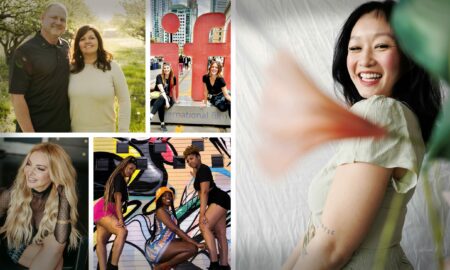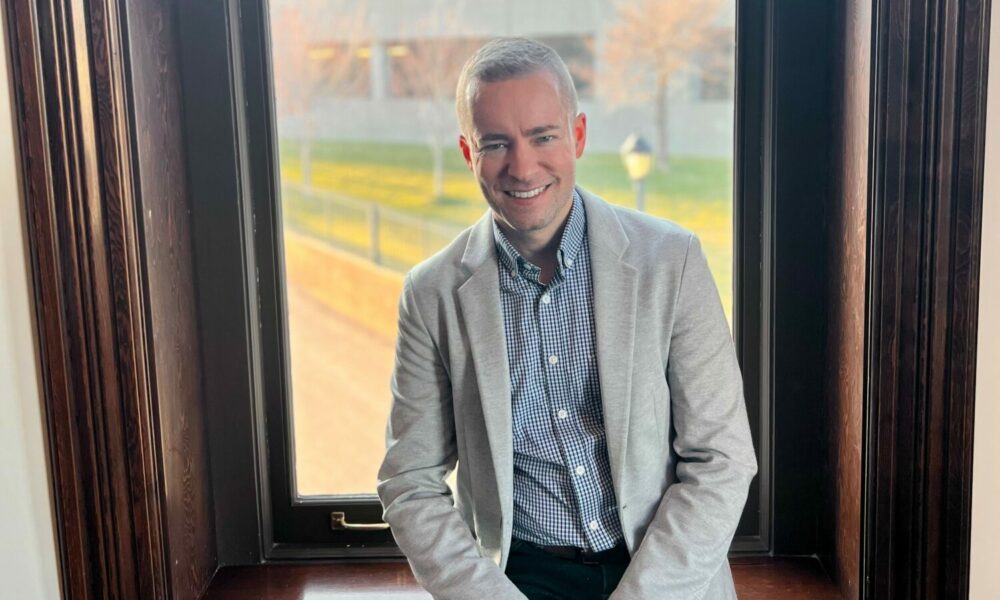

Today we’d like to introduce you to Bradley Petzold.
Hi Bradley, thanks for sharing your story with us. To start, you could tell our readers some of your backstories.
I was born and raised in St. Louis, Missouri, and I became hooked on music from a young age. My mother was my first teacher; I was just 5 years old. My parents used to have a Kimball upright in the living room, and it was perfect for learning how to play the piano. I soon realized that I had a musical talent, and my appreciation of it grew through the several concerts my parents would take me to, most notably ones with the St. Louis Symphony Orchestra. By the time I was 8 years old, I had determined that I wanted to make music my primary pursuit and become a professional musician. As I progressed in my studies, I started playing everywhere I could- school, retirement and nursing homes, and at the Methodist church my family attended, to name a few. I even made audio cassette recordings of my performances and sold them for $2 each to friends and family!
Once I entered Junior High, I had the opportunity to learn how to play clarinet in the school band and loved it. Playing in a band allowed me to appreciate making music with others and how to play as part of an ensemble, skills I still use today. Around this time, I also learned how to play the violin and would perform around town with my teacher’s other students. I decided by High School that my main instrument would be the piano, but I would continue playing clarinet in the band. I began studying piano with Donna Vince at Webster University and had the opportunity to compete in several local and regional competitions, winning many of them. I also accompanied my high school’s concert choir and show choir and several instrumentalists in local and state competitions. The clarinet was a close second, though; I played first chair in my high school’s marching band and concert band, played first chair in the St. Louis All-Suburban Band, played in the Webster University Young People’s Symphonic Orchestra, played in the Missouri All-State Band, and played in various community bands.
To earn money, I learned how to play the pipe organ and became a substitute organist for several area Methodist churches, including the one I attended growing up. I studied organ with William Partridge of Webster University and organist at Christ Church Cathedral in St. Louis. I loved the power of the organ and its versatility in volume, color, and sound—a much different experience than playing piano, for sure. I also enjoyed planning the music for each service as I had the freedom to decide which pieces to play and where they would have the most emotional impact during the service to supplement the theme or message of the service most effectively. I also taught clarinet and piano lessons and discovered I enjoyed teaching. Teaching taught me how to be a better musician, and I loved seeing students progress.
During the summer of 2002, I was accepted into Indiana University’s Piano Academy, a three-week intensive study program attended by Middle and High School students from around the country. It was a pivotal experience that would further propel me into music, convincing me that my next step would be preparing to study piano in college. I loved the experience so much that I went back the next year. I made many friends while attending the academy, several of whom I’m still friends with today.
My piano studies eventually brought me to Kansas City in 2004, when I was awarded a full scholarship to study at UMKC’s Conservatory of Music with Karen Kushner. The talent level was eye-opening and inspiring, and I became immersed in the program, practicing 6-8 hours daily. During my first year, I started playing around town for various events and even played at what was then Bar Natasha in downtown Kansas City. I would eventually transfer my studies to the University of Kansas in Lawrence, where I studied with Jack Winerock and completed my undergraduate degree in piano performance. While in college, I played the clarinet in various ensembles and accompanied numerous vocal majors each semester. I also continued teaching private piano lessons. It was a wonderful experience being around so many burgeoning musicians, many of whom have become lifelong friends. Unfortunately, during this time, I realized I might not be well-suited for a music career, at least as a professional musician.
I had severe anxiety about performing and began doubting my future in music. Would I make enough money? Would I want to be on the road each week chasing gigs? Are there positions open to teaching at a university when I graduate? I can’t transpose or improvise or play by ear. Don’t you have to be able to do those things? Although I was accepted into several master’s degree programs to further my piano studies, I ultimately decided to study business in grad school. I stayed at KU to earn an MBA in Finance. I didn’t stop playing piano, though, and continued to accompany vocal majors and even prepared a recital that I gave during my final year of grad school. Choosing a path in business was a bittersweet decision, but one I do not regret as it allowed me to continue to appreciate music and expand other interests.
The MBA program led me back to Kansas City, where I began a career at Cerner and lived in an apartment alone for the first time. While a healthcare career in IT is not at all close to one in music, the skills I learned while studying music were easily transferable- How to be a team player, the importance of attention to detail, the determination and focus to see a problem through to resolution, and how to relate to different types of people. I was in a consultant role, so I often traveled to work directly with clients. My job took me to nearly every major city in the US and cities in Sweden and Canada. Traveling each week was such a thrill, not quite knowing what challenges would lie ahead. I was exhausted upon returning home each week but somehow energized at the same time. I also had the opportunity to become a manager of other consultants during this time. I could sense all of the skills I had honed as a music teacher coming into play, patience being the most notable. I had found my niche, and I loved every moment of it.
After a few years into my career at Cerner, I realized my connection to music was fading. I attended KC Symphony concerts, solo piano concerts, plays, operas, ballets, and other performances as often as possible. Still, I started to feel uncomfortably distant from music as I was no longer actively contributing myself. I decided to transfer to a different role at Cerner that wouldn’t require weekly travel, and that would allow me the freedom to become more immersed in the art scene of Kansas City. I attended young professionals’ meet-ups and joined groups, including BARRE KC of the KC Ballet. It was exciting to network with others like me, working in a non-music field but passionate about music and the arts. In 2016 I had the opportunity to be a founding member of Maestro KC, the young professional group of the KC Symphony. The response from the community was incredible, and the group grew to over 500 members in just two years. I had found the perfect balance between work and an outlet for my musical interests and was thriving.
In 2017, I had the opportunity to hear Kara Huber, an old friend from the Indiana University piano academies, make her Carnegie Hall debut. Kara was (and is) one of the several friends I met along the way who truly made it as a professional musician, and it was inspiring to see her perform in New York for the first time. I even got to sit next to Joan Tower, a Grammy-winning composer, pianist, and conductor, and Kara was performing one of her new works; it was thrilling! Kara had asked me soon after her debut about performance opportunities in Kansas City, perhaps with some of the already well-established concert series that had become staples throughout the community. I took a stab at being Kara’s first agent but failed miserably, as the answers I received were always “no” or “maybe next season or the one after that.” What would it take if I couldn’t get someone as talented as Kara to get a spot on these series’ schedules? Kara, somewhat casually, suggested I start my series and mentioned several cities throughout the country have salon concert series in intimate venues like libraries, art museums, and even people’s homes. I think I initially scoffed at the idea. How would that even be possible? Knowing Kara was likely onto something, I contemplated the idea for nearly a year. After hours of research (which included meeting with artistic directors of such series around the country), introspection, and even meditation, I concluded that a salon concert series could be successful in Kansas City, so I decided to go for it.
During the spring of 2018, I began creating the series. I formed a board, hired a graphic designer, chose vendors for the website, web hosting, email, and ticketing, became 501(c)(3) accredited, formed our vision statement, networked with prospective musicians, met with prospective donors, and set a date for the first concert. I was running a start-up company working until 2 or 3:00 in the morning most days. I was inspired to put in that amount of effort, though, because I could see what the series could become- an accessible concert experience that would move around to different homes and intimate venues throughout the Kansas City metro featuring a wide range of musical talent, instrumentation, and genres and that would truly connect the audience to the musician and the musician to the audience. The Series would be called Charlotte House Series, named after the street on which my home at the time was located and where the first several concerts would be held. Kara, of course, was the inaugural musician, and she opened The Series in October 2018 to a sold-out crowd of 45 people (the most my modestly sized home could hold!).
The Series is now in its 5th season and has invited over 35 musicians to perform. We’ve presented a jazz band from Baltimore, pianists from Cincinnati, Boston, Chicago, and Raleigh, local chamber ensembles, local singers and songwriters, musicians of the KC and San Francisco Symphonies, and incredibly talented local students. The Series now has locations around the entire KC metro and will be headed to North Kansas City next, where it will present a local saxophone and piano duo. That concert will also feature a premiere of the Series’ first commissioned work.
I am grateful for my path as it has culminated in the successful launch of the Charlotte House Series. My musical background gave me the knowledge and experience needed to program an entire season (and not just a church service or recital), it introduced me to a network of musicians locally and around the country, and it allowed me to understand how important sharing music in small spaces (compared to concert halls) truly is. My business background and career experience were vital in understanding how to run what is essentially a small business, navigate various laws and regulations, market and promote, and scale the Series to most effectively leverage resources and ensure sustainability. I am excited to see how the Series continues to grow as it matures over time. I have no doubt though that my initial vision of the Series being the premier salon-style concert series in Kansas City will become a reality.
I do still perform myself, but no longer very much on piano. In 2017 I developed a largely untreatable nerve condition in my right arm, making it extremely difficult to play. Eager to find another performance outlet after so many years of not being on stage, despite my anxiety, I found that I didn’t need an actual instrument at all to perform. I could sing! While I still play piano as I can at home, my main musical outlet now is singing tenor in the Heartland Men’s Chorus. Turning this obstacle into an opportunity was one of the best decisions I’ve ever made. I will always be grateful for the many ways I now have to express myself musically.
Was it a smooth road, and if not, what are some of the biggest challenges you’ve faced along the way?
Throughout college, I would say the main struggle was facing the conflict between taking the time to pursue my passion (studying piano/making a music career) and grappling with the reality that I was likely “not good enough” to make it or that I didn’t have what it took to be successful and self-sufficient as a musician. I rectified that conflict by pursuing business in grad school, but I often wonder where I would have been had I decided to stay in music continuously. Current college piano professors are, after all, my age now! As I began the Series, the main struggle was learning how to manage my time effectively among the responsibilities I now have (work, home, the Series, personal life, chorus, etc.). Creating strong boundaries among them became important, although I do always carry my CHS business cards with me; I never know if I’ll end up running into a prospective musician, concert host, series donor, or future patron. I generally work on Series-related items in the evenings and on weekends. Not having much true downtime has been challenging, but I am always re-energized after every concert and put that energy into the next, so it seems I will always continue!
Thanks for sharing that. So, maybe next, you can tell us more about your business?
The Charlotte House Series connects musicians to the local community in homes throughout Kansas City, starting with one on Charlotte Street, where it was founded. While aiming to provide a unique concert experience accessible to all audiences, the Series celebrates a music tradition that has seemingly been forgotten, that of a salon style in which music was often performed in small settings such as parlors or living rooms. Popular in Europe throughout much of the 19th century, the salon was a setting for musicians of the time to perform and for composers themselves to showcase new works. Pieces performed regularly featured a high degree of virtuosity and showmanship. The intimate nature of such venues was conducive to an elegance and nostalgia found in much of the other of the era music.
The success of The Series lies in its ability to connect audience members to the musician and the musician to the audience, creating a unique exchange of energy that can only happen in a more intimate venue, unlike in a large concert hall. Also, the salon concert from Chopin’s time was as much about socializing and discussing the latest issues of the day as it was about the music, so our concerts are broken evenly into an hour-long concert and an hour-long reception where patrons have the opportunity to not only mingle with each other but to meet the musician(s) as well.
The Series has a particularly strong focus on elevating local students by inviting them to perform and awarding music scholarships to continue their studies in college, a goal we aim to achieve in our upcoming season. The Series is grateful for its strong patron base and generous donors who have contributed to making its vision a reality.
Is there something surprising that you feel even people who know you might not know about?
The most surprising thing that strikes most people is my career has nothing to do with music. They are most shocked by how I went from studying piano as an undergrad to an MBA in grad school. Most people, though, don’t know that I was a double major in Piano Performance and Accounting for most of my undergrad, so the switch to study business in grad school was more than it may have seemed.
Contact Info:
- Website: https://www.charlottemusic.org
- Instagram: https://www.instagram.com/charlottemusickc/
- Facebook: https://www.facebook.com/charlottemusicKC/
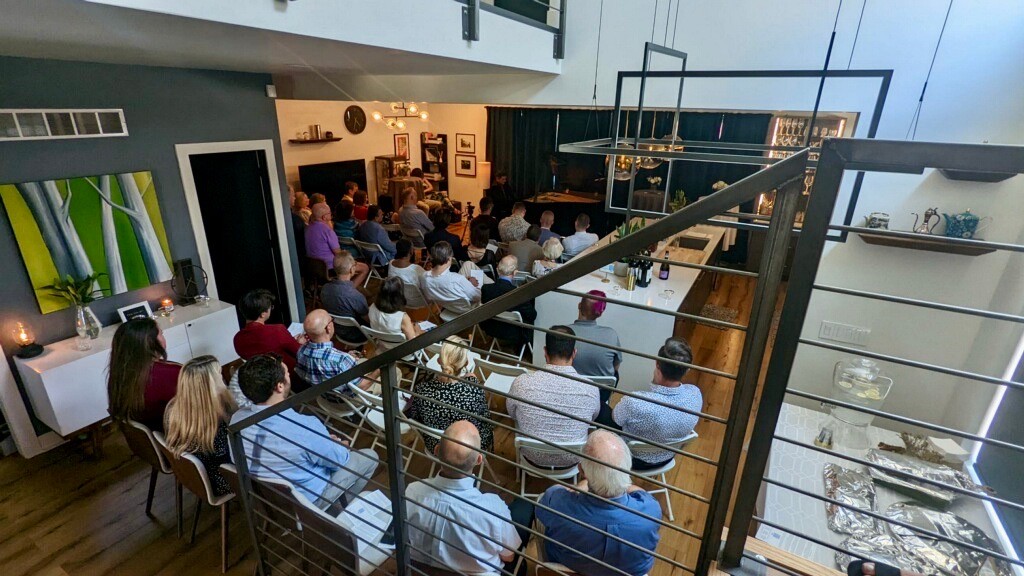
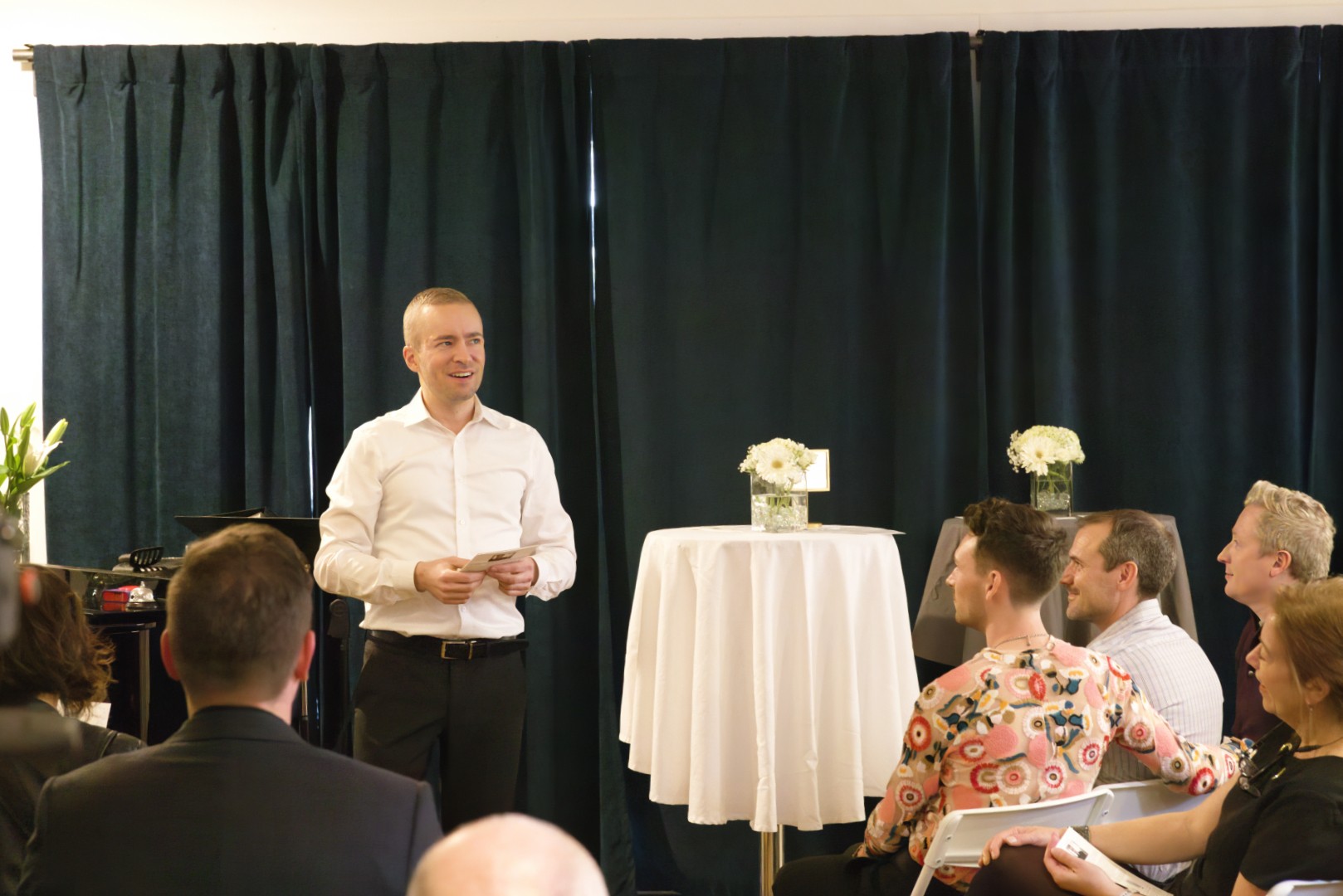
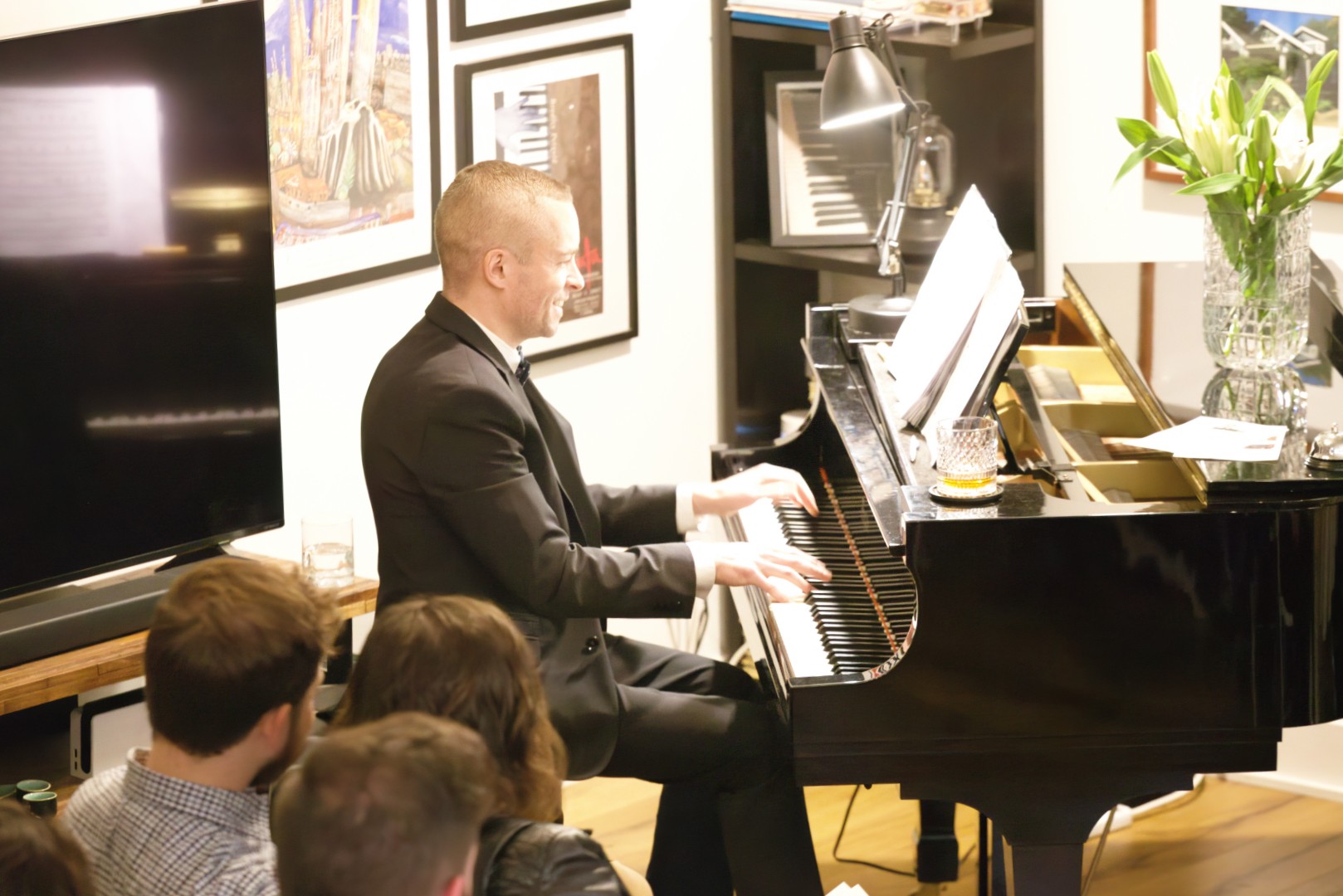
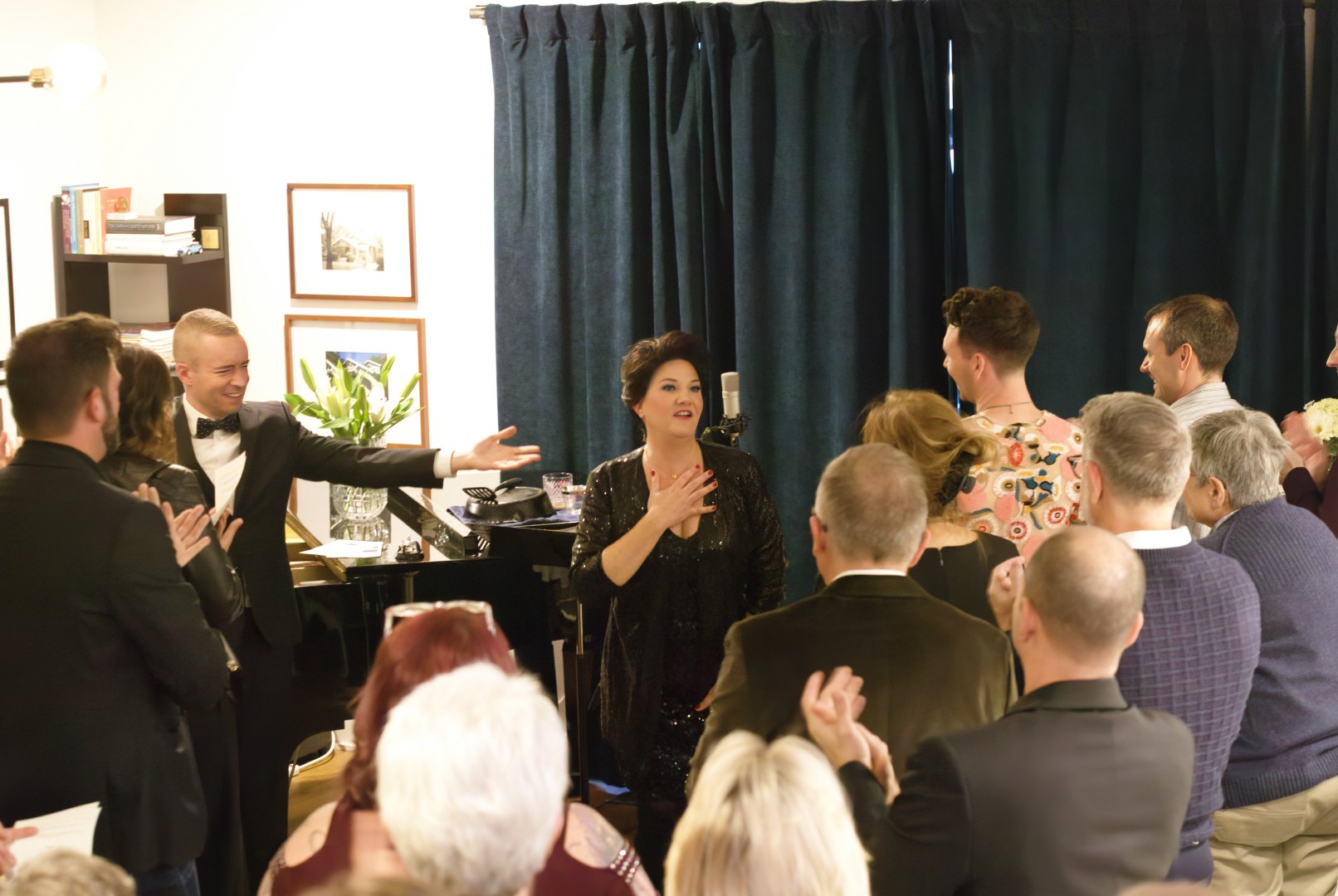
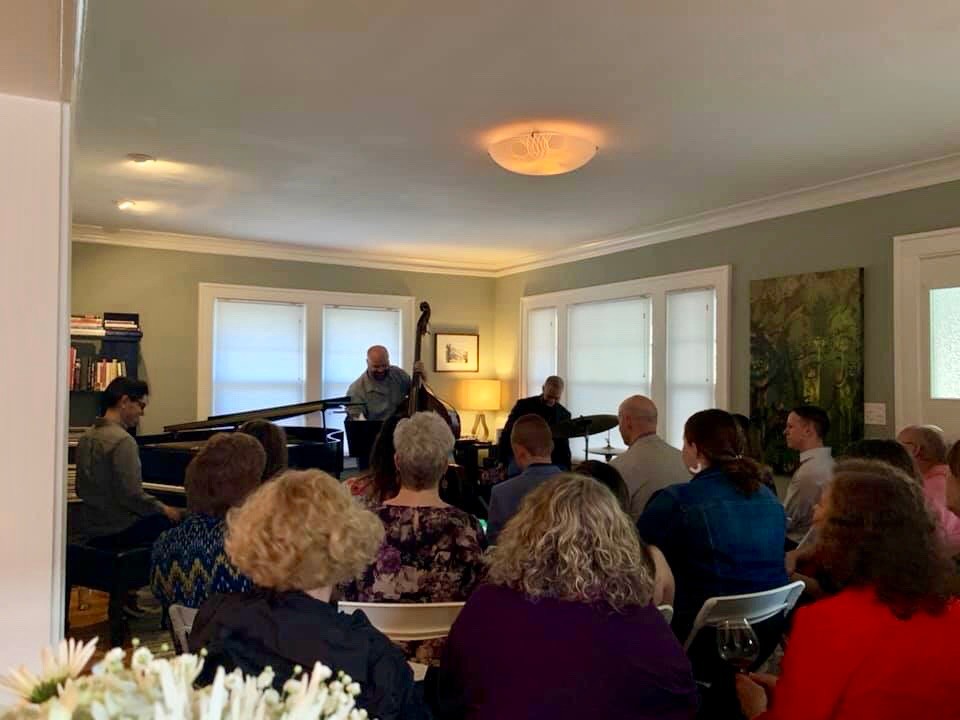
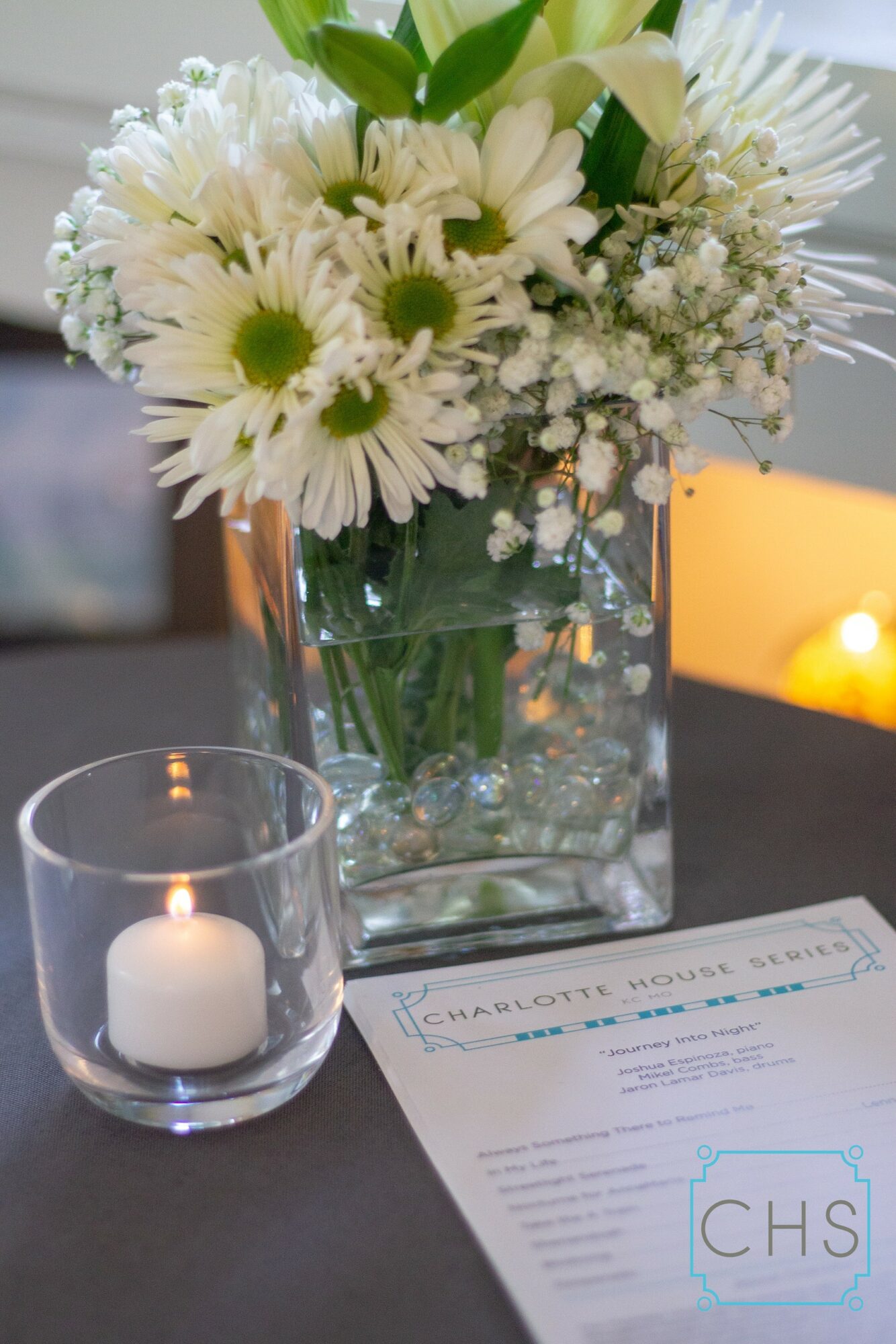
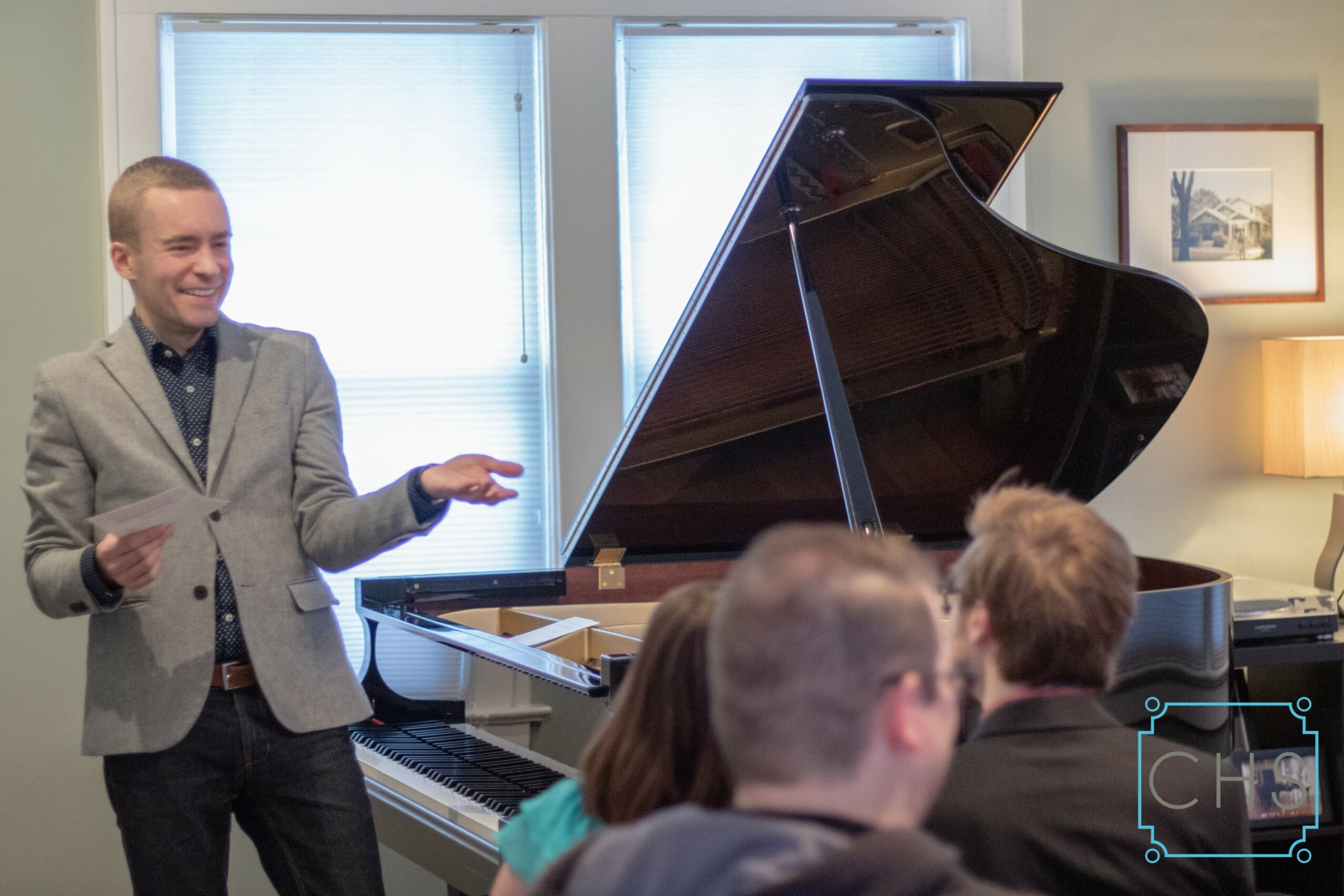
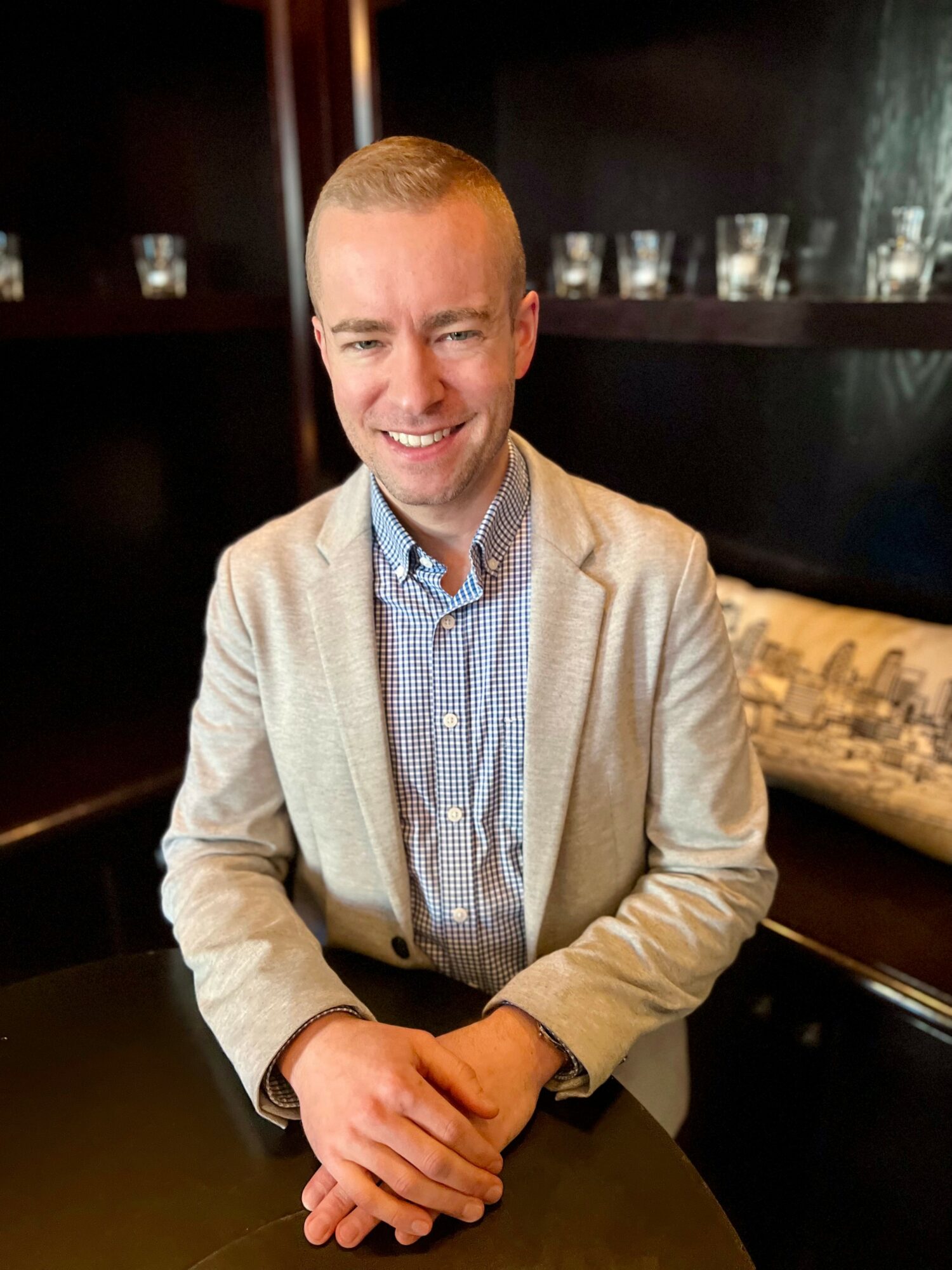
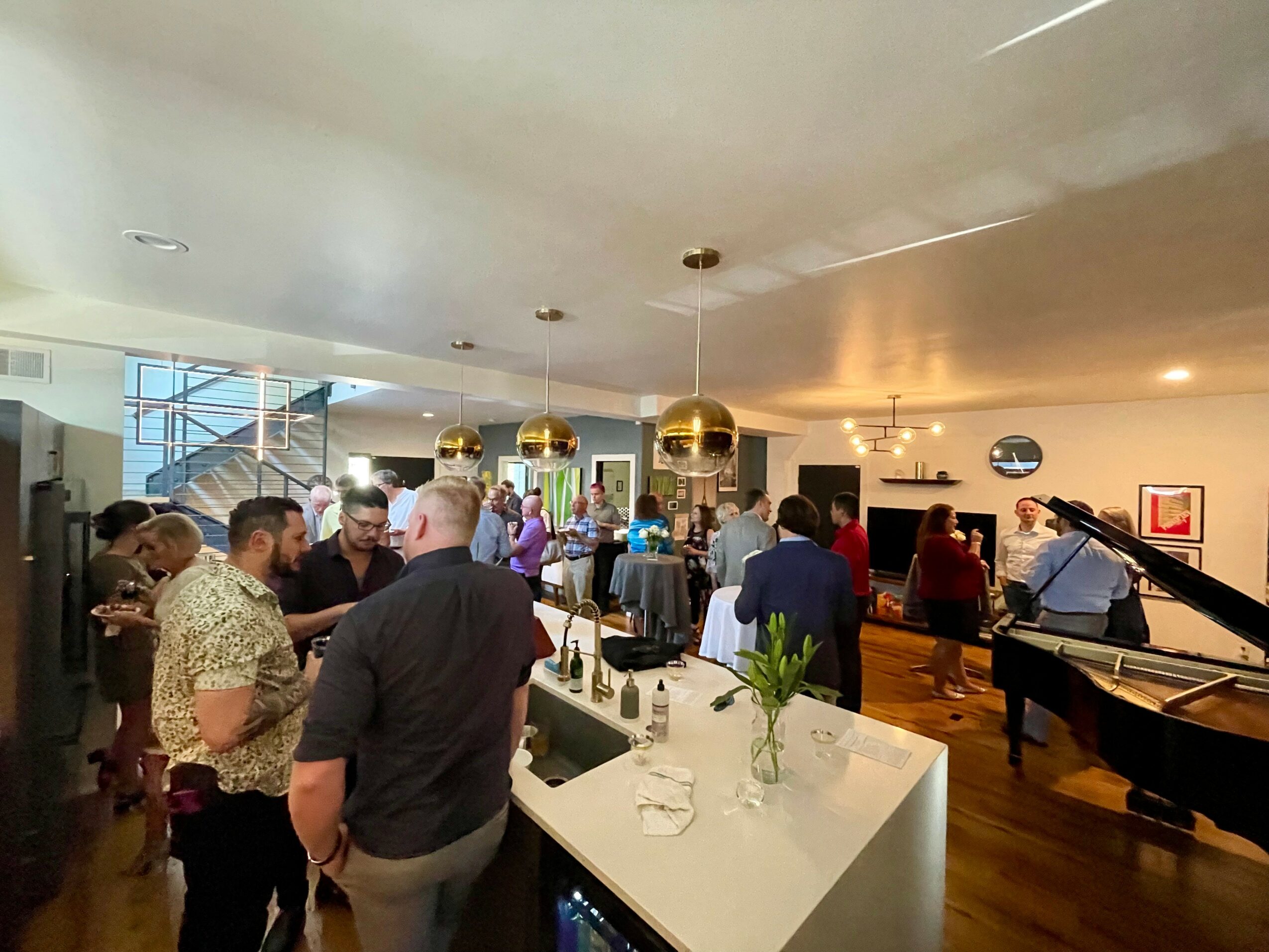
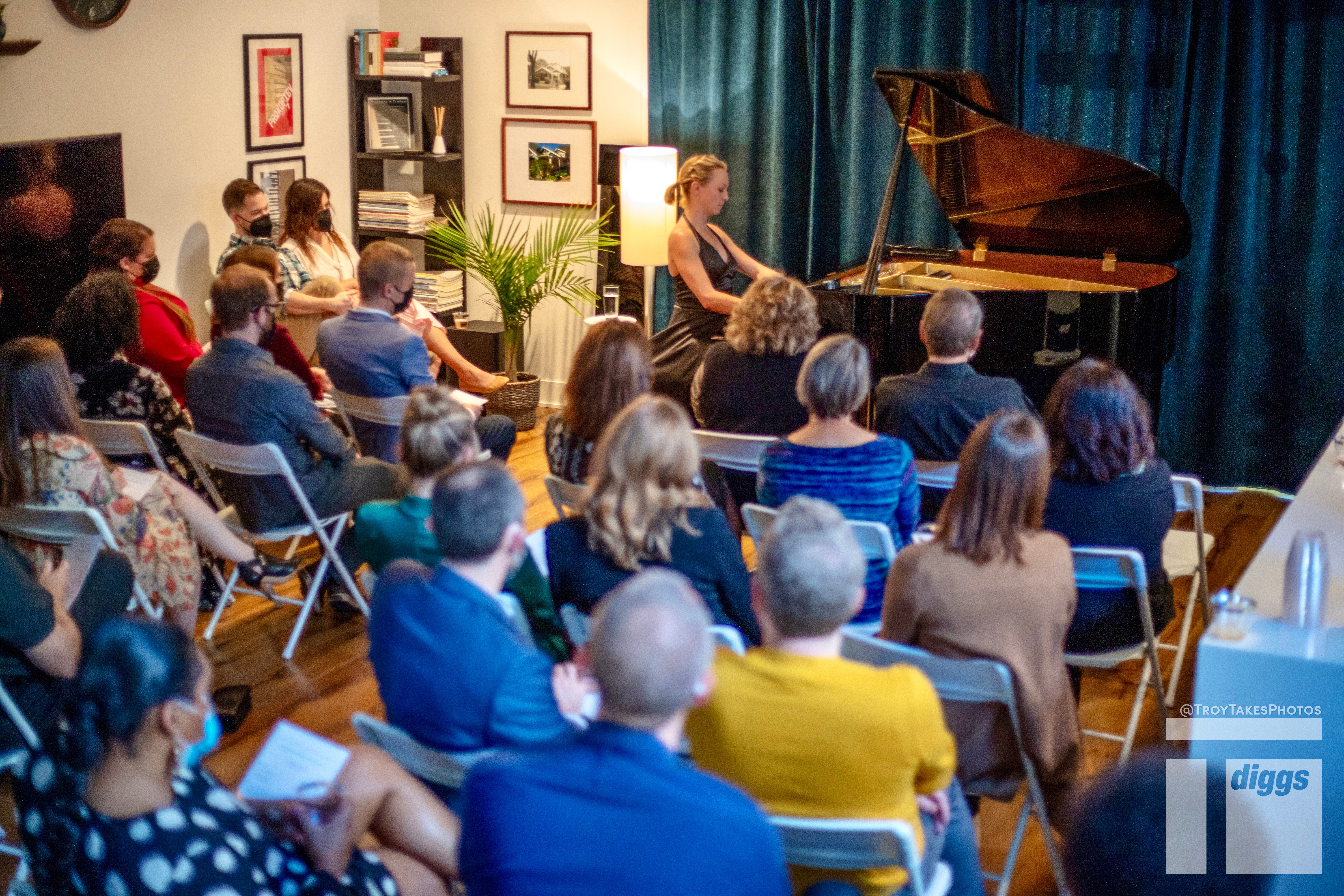
Image Credits
Troy Diggs, Anna Knutson

